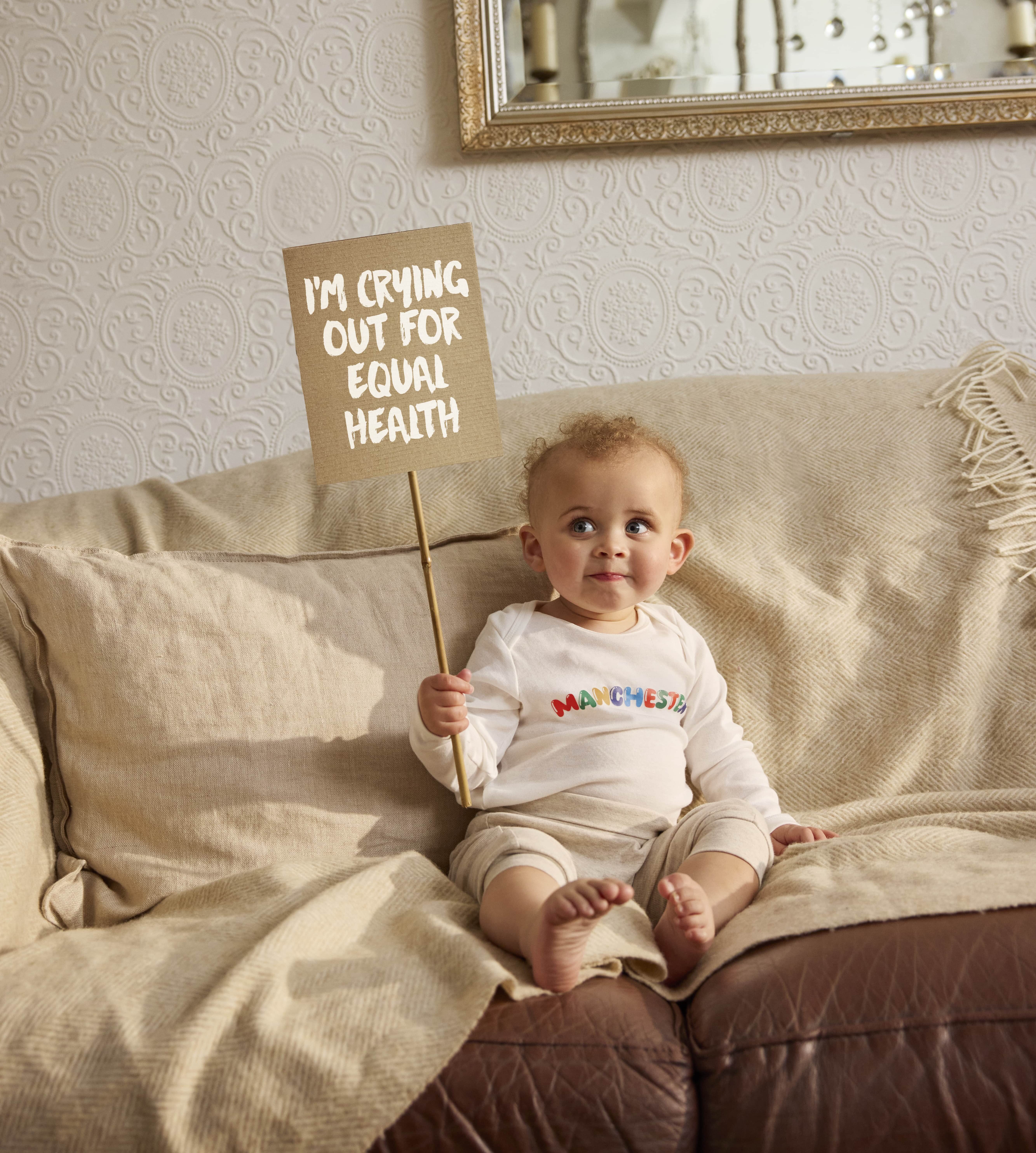MAKE HEALTH EQUAL IN THE NORTH WEST

Discover the life expectancy in your area
The number of years a person can expect to live is affected by many things, from good-quality homes, to neighbourhoods with green space and clean air.
Discover the life expectancy where you live.
LIFE EXPECTANCY
The world around us shapes our health and wellbeing.
From quality homes that are warm and safe, to stable jobs, social connections, and neighbourhoods with green space and clean air, these are the building blocks that have a lasting and positive impact on people’s health, and reduce health inequalities.
In the North West and across the UK, these building blocks are not available to everyone, or not at the quality needed.
WE ASKED PEOPLE IN MANCHESTER WHAT THEY THINK THE AVERAGE LIFE EXPECTANCY IN THEIR AREA IS, AND THE THINGS THAT CONTRIBUTE MOST TO THEIR HEALTH.
Find out what they said…
-
'The condition of my home affected my mental health and the health of my family' Augustina from Manchester has first-hand experience of the impact of living in poor quality housing.
‘My family and I lived in Manchester for 13 years in a house in disrepair. My daughter had serious asthma and the mould in our house was bad, especially in the bathroom, which made her asthma worse.
‘When I told the landlord about this all he said was ‘clean it yourself.’ He didn’t do anything about it. I had to buy bleach and brushes and clean the walls and the ceilings all the time. There were holes all over the walls and the skirting and mice would go into the children’s bedrooms at night – it was affecting their sleep, their school. The condition of my home affected my mental health a great deal. When people say they wanted to visit, I felt ashamed and embarrassed so I would turn them down.
‘We complained to the landlord about the damp and mould, mice, the fire alarms not working, parts of the ceiling falling in, but he didn’t do anything about it at all. Eventually we moved somewhere else which is in much better condition. Tenants don’t get what they deserve, what they pay for every month. We shouldn’t have had to move just for our conditions to improve.”
-
'We provide a safe space for older people to make connections and improve their health' Greater Manchester Mature Minds Matter is a group ran by and open to all aged 50+, which aims to amplify the voices of older people and transforming perceptions around their mental health.
Their 2023 project – ‘Rhymes from the Wise’ – featured creative poetry workshops where anyone aged 50+ was welcome to write poetry and reflect. The project supported social inclusion and community, reducing stigma and giving older people a welcoming space to discuss their mental health.
One participating member said: ‘we have a combined knowledge and want to combat the stigma whilst having an influence on mental health support.’
-
'I wouldn’t be here today if it wasn’t for the communities and networks available here in Manchester. I’m enjoying life and being myself at last.' James, 84 is the current chair of Greater Manchester Mature Minds Matter. James has lived experience of being a carer for his wife who struggled with her mental health and shares his experiences to influence system transformation in Greater Manchester. He is also involved in many LGBT groups in Manchester where he connects with peers, enjoys social activities and advocates for LGBT people.
‘I wouldn’t be here today if it wasn’t for the communities and networks available here in Manchester. I’m enjoying life and being myself at last.’
James said: ‘During various stages of life, my mental health and wellbeing has been impacted in different ways. Notably, while I was caring for my wife, who also had mental health issues, but also over the many years in which I suppressed my emotions and homosexuality.
‘At times I had been incredibly depressed and lonely. I’d never wanted to put my needs first and it was tough raising a family and caring for my wife who was bipolar and had depressions followed by manic highs.
‘I came out shortly after my wife died in 2003. The first person I came out to, at age 64, was my great friend Brenda who I walked to Church with one Sunday. Soon after that I started joining gay groups in Manchester. Now, I have a wide circle of good friends and acquaintances. I never thought I’d have this life, but thanks to networks and groups like the Greater Manchester Mature Minds Matter, LGBT Foundation and Pride in Ageing, all of which are free and accessible to everyone, I’m enjoying life and being myself at last.’
Let’s #MakeHealthEqual
Sign up to join our campaign network and receive updates on how you can help shape a society where each of us has the best chance of good health, no matter where we’re born.
Sign up to find out more about our campaigns and how you can help shape a society where each of us has the best chance of good health, no matter where we’re born.


